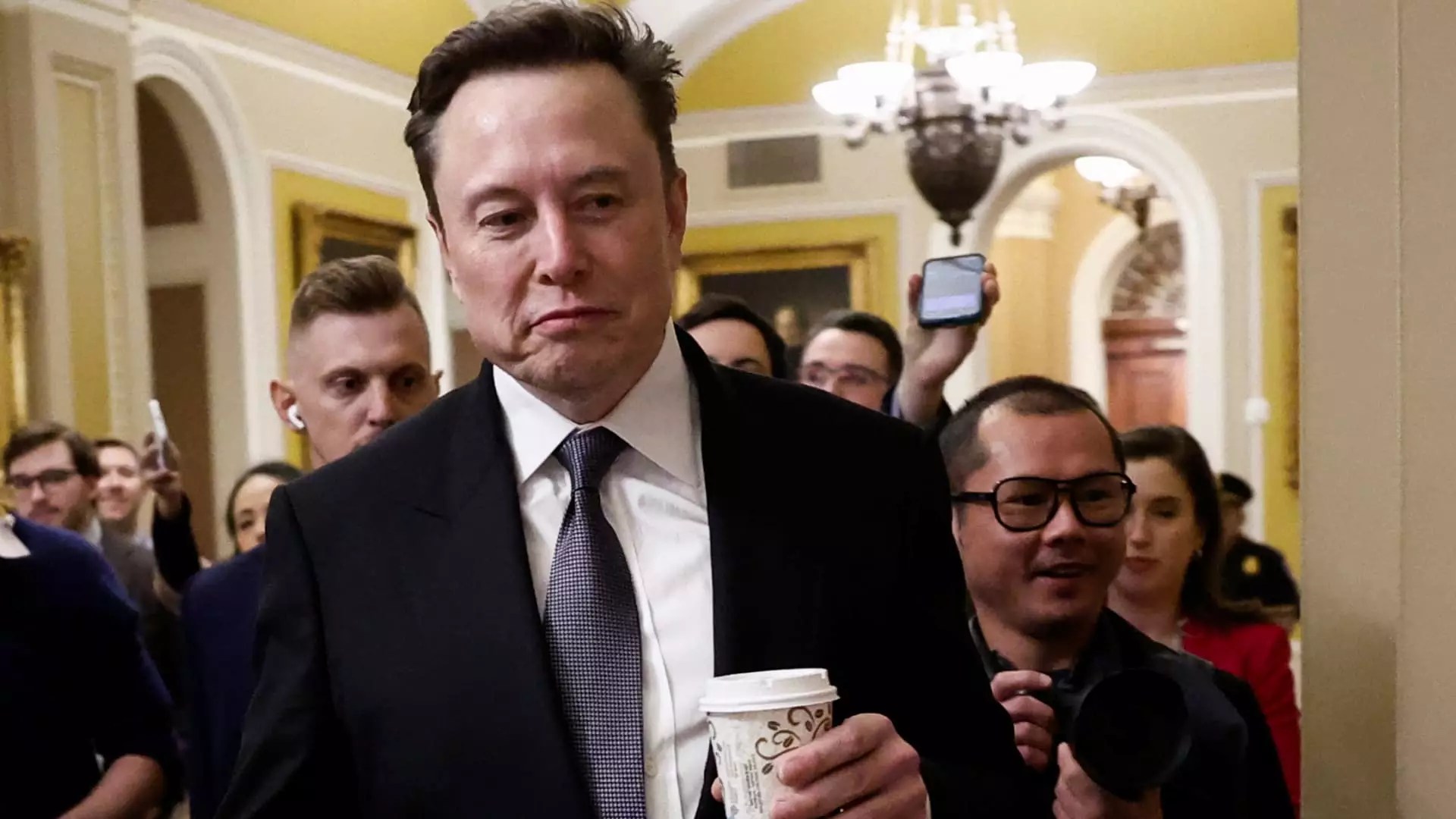In the ever-evolving landscape of American politics, few figures stand out quite like Elon Musk. As the founder of Tesla and SpaceX, Musk has transcended the role of a mere businessman to become a significant political player. Recent events have highlighted the extent to which Musk’s influence can alter legislative directions, particularly concerning U.S.-China relations and domestic technology policies. This article critically examines the implications of Musk’s engagements, particularly in the context of congressional debates around government funding and regulations on investments in China.
The recent clash between House Democrats, led by Jim McGovern and Rosa DeLauro, and their Republican counterparts underscores a growing concern about the interplay of corporate interests and legislative actions. McGovern was particularly vocal about how Republicans may have acquiesced to Musk’s lobbying efforts to thwart a bipartisan government funding bill, which included significant provisions that would have governed U.S. investments in China. Instead of strengthening safeguards to control tech exports and maintain competitive advantages in sectors like artificial intelligence and quantum computing, political maneuvering seems to have prioritized the needs of a billionaire entrepreneur.
Musk’s position is precarious as his ventures in China are essential to his business model. Particularly, Tesla’s footprint—being the only foreign automaker without a local joint venture—grants him unique leverage, but also compels him to navigate complex geopolitical waters. By establishing a manufacturing presence in Shanghai, Musk has woven his corporate interests tightly with Chinese state expectations, raising questions about national security and economic autonomy. McGovern’s comments regarding Musk’s “problem” frame it as a conflict of interest that benefits Musk while potentially jeopardizing American technological advancements.
The relationship between Musk and the Chinese Communist Party is particularly concerning for lawmakers. DeLauro emphasized the necessary Chinese government approvals that Musk must secure for his projects. This dependency arguably undercuts the United States’ position amidst escalating geopolitical tensions, especially regarding Taiwan—a contentious issue where business interests intersect with issues of sovereignty and national security. The ethical implications of Musk’s relationship with Beijing are significant; negotiations that prioritize profit over national integrity may set dangerous precedents.
Further complicating the matter is the involvement of former President Donald Trump, whose alignment with Musk following the 2024 election raises questions about outside influence on federal policy. As Musk has emerged as a key advisor to Trump, pushing for regulatory rollbacks and supporting nationalist economic agendas, the broader implications for democracy and corporate governance become pronounced.
Musk’s dismissive response to DeLauro, labeling her an “awful creature,” succinctly captures the tumultuous dynamics at play. His invective not only reflects personal animosity but also highlights growing tensions between elected representatives and corporate leaders. This kind of engagement, where personal attacks supersede substantive dialogue, poses a challenge to effective governance.
Additionally, Musk’s substantial financial contributions to Trump’s campaign and other Republican endeavors accentuate the risks of money in politics. Musk’s apparent abandonment of bipartisan cooperation underscores a trend of escalating partisanship, with corporate donors wielding disproportionate influence on policy formulation. This situation raises ethical questions about the extent to which individuals can leverage their wealth to shape legislative outcomes, effectively undermining the democratic process.
As Elon Musk continues to navigate the uncharted waters of business and politics, the implications of his actions warrant scrutiny. The recent events in Congress represent just one vivid illustration of how complex these interactions can become. As lawmakers grapple with the dual challenges of national security and economic vibrancy, a critical examination of the influence wielded by figures like Musk is essential. Policymakers must remain vigilant to ensure that national interests do not become collateral damage in the pursuit of corporate gain. While innovation and investment are vital for economic growth, they must not come at the expense of ethical governance and national integrity. The dialogue around these issues must evolve, demanding accountability from both corporations and the politicians they influence.


Leave a Reply